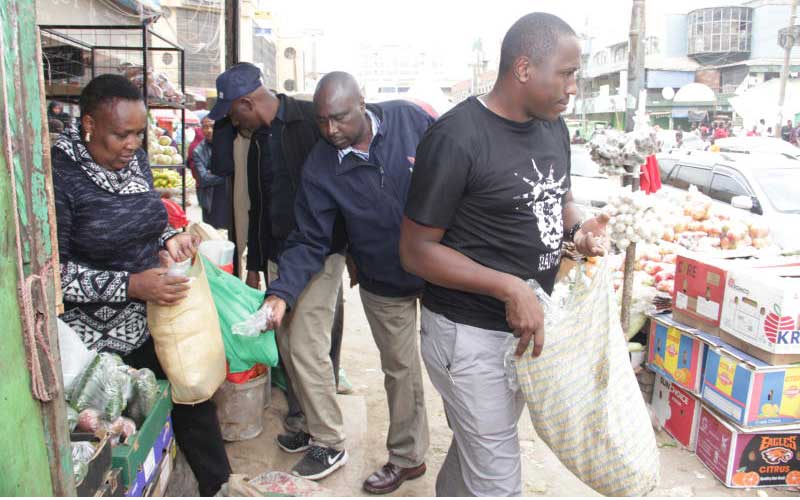×
The Standard e-Paper
Fearless, Trusted News

At 6pm along Tom Mboya street in Nairobi, a woman sits on the pavement, legs stretched out as she calls pedestrians’ attention to her stock, peas and French beans packed in transparent plastic bags.
In Roysambu, Nairobi, another woman -- a mama mboga -- stuffs chopped kale into a plastic bag. Carrots, chilli and ginger are displayed in plastic bags.